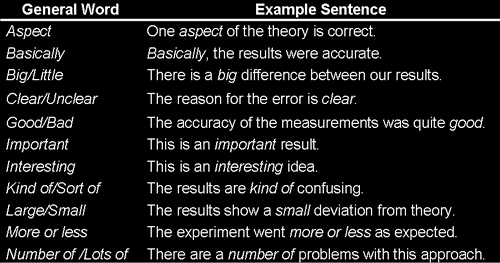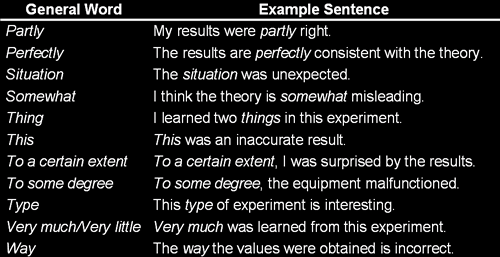Technical readers expect you to express yourself as precisely as possible. To some degree, technical and professional writing depends more or less upon your ability to use somewhat precise language. As we hope you noticed, the previous sentence demonstrates an inappropriate style relying heavily on overly general language: to some degree, more or less, and somewhat. Readers of technical and scientific documents become frustrated by this kind of language because it leaves them with questions. To what degree? How much is "more or less?" How can anything be "somewhat precise"?
Expressing numerical values accurately (e.g., x=5.065 ± .005) is generally more straightforward than expressing thoughts precisely in words. Nevertheless, many engineering students spend much time ensuring the numerical expressions they use are correct, but little, if any, time identifying and revising overly general language. If you have a habit of using general language, you must become aware of this tendency and learn how to revise.
The following table lists some of the more common words and phrases to watch for when revising for general language.

